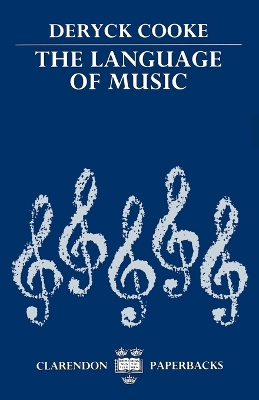Clarendon Paperbacks
2 total works
Wagner's Ring is a great masterpiece. But because of the work's rich complexity it is difficult to think sensibly about its text and music. Deryck Cooke, author of The Language of Music and completer of Mahler's Tenth Symphony, displays his masterly common sense in this study of how and why The Ring took the shape it did. It is only a portion of the enormous book he had planned: his untimely death prevented his writing an analysis of the
music. But it covers the first two operas of the cycle (Rheingold and The Valkyrie) and even as it stands gives a fresh understanding and appreciation to every lover of Wagner's music.
music. But it covers the first two operas of the cycle (Rheingold and The Valkyrie) and even as it stands gives a fresh understanding and appreciation to every lover of Wagner's music.
This important and controversial book has come to be regarded as a modern classic. Originally published in 1959, it has exerted a profound influence on all subsequent discussion in the field of musical aesthetics. The author's thesis is that the main characteristic of music is to express and evoke emotion, and that all composers whose music has a tonal basis have used the same, or closely similar, melodic phrases, harmonies, and rhythms to express and evoke the same
emotions. He supports this view with numerous musical examples, varying from plainsong to Stravinsky. Based on this evidence he argues that music is a language in the quite specific sense that idioms can be identified and a list of meanings compiled. While acknowledging that a 'dictionary' of the
language of music cannot easily be provided, he attempts to supply what could at least be regarded as a 'phrase book'. The enlightening analysis of two complete symphonies by Mozart and Vaughan Williams demonstrates the expressive function of musical form, the latter being an element which the author considers inseparable from musical content.
emotions. He supports this view with numerous musical examples, varying from plainsong to Stravinsky. Based on this evidence he argues that music is a language in the quite specific sense that idioms can be identified and a list of meanings compiled. While acknowledging that a 'dictionary' of the
language of music cannot easily be provided, he attempts to supply what could at least be regarded as a 'phrase book'. The enlightening analysis of two complete symphonies by Mozart and Vaughan Williams demonstrates the expressive function of musical form, the latter being an element which the author considers inseparable from musical content.

